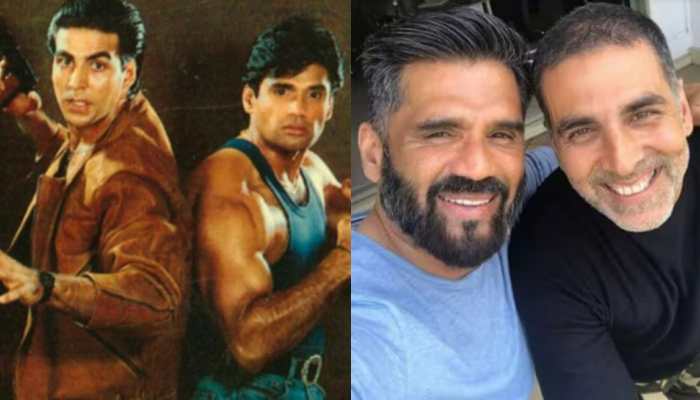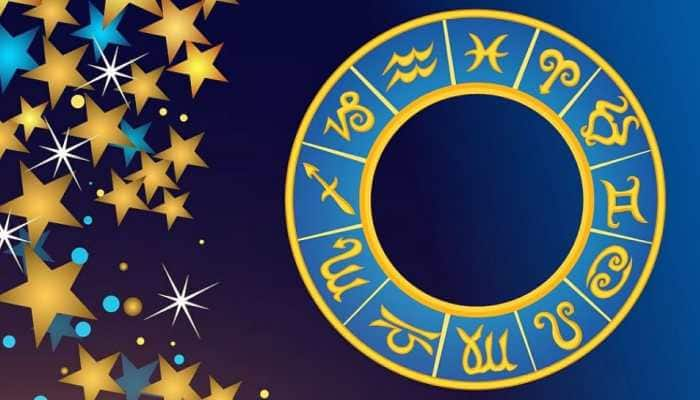Henry Kissinger-The canny diplomat
One of the most prominent American intellectuals of the twentieth century, Henry Kissinger played a pivotal role in US foreign policy under Presidents Nixon and Ford and was a force to reckon with. According to biographer Robert Schulzinger, "Kissinger seizes the imagination because he engineered the most significant turning point in United States foreign policy since the beginning of the cold war."
Trending Photos
One of the most prominent American intellectuals of the twentieth century, Henry Kissinger played a pivotal role in US foreign policy under Presidents Nixon and Ford and was a force to reckon with. According to biographer Robert Schulzinger, "Kissinger seizes the imagination because he engineered the most significant turning point in United States foreign policy since the beginning of the cold war." Diplomatic Milestones The 56th Secretary of State of the United States from 1973 to 1977, he continued to hold the position of Assistant to the President for National Security Affairs which he first assumed in 1969 until 1975. In 1968 President-elect Richard Nixon appointed Kissinger as his National Security Adviser, in what Time magazine described as an "improbable partnership" between a "secretive, aloof… old-fashioned politician, given over to over-simplified rhetoric" and "a Harvard professor of urbane intelligence." Working in close collaboration, the two set out to re-shape US diplomacy. During his years in office Dr K infused an aggressive dynamism and pragmatism into US foreign affairs and advised President Nixon on vital issues of foreign policy such as Vietnam, China, détente with the Soviet Union, and the Middle East.To a large extent, Kissinger acted as a mediator in the secret negotiations that eventually opened up relations between the US and Communist China. Dr K rejected a moralistic approach to the Soviet Union based on anti-Communist ideology. A realist, he recognized Russia as a rival superpower, and sought to achieve a global balance of power by pursuing areas of cooperation with Moscow, a policy known as "détente." Similarly, Kissinger began secret talks with North Vietnam in 1969 in the hope of reaching a settlement to the Vietnam War.He is also credited for brokering an end to hostilities in the 1973 Yom Kippur War between Israel, Egypt and Syria, Kissinger then embarked on an intensive "shuttle diplomacy" effort to help mediate the long-standing Arab-Israeli conflict. Diplomatic faux pas But conversely, Henry Kissinger also drew a lot of flak for his execution of “realpolitik”(German for "politics of reality"), which is "foreign politics based on practical concerns rather than theory or ethics." In his own words:"The illegal we can do right now; the Constitutional will take a little longer". Evidence shows that Kissinger sabotaged the 1968 Vietnam peace talks which allowed the US -Vietnam War to drag on for another four years. Three million Vietnamese and 58,000 Americans were killed in that conflict. There is also proof that Kissinger personally persuaded Nixon to extend the war to Cambodia and Laos which led to another million civilian deaths. The secret bombing raids were given code names like `Operation Breakfast`. After one raid, Nixon`s chief of staff HR Haldeman wrote in his diary: `Historic day, K`s "Operation Breakfast" finally came off at 2:00pm... K really excited... he came in beaming with the report, very productive. `The raids killed 350,000 civilians in Laos and more than 600,000 in Cambodia.But Kissinger had only this to say about the genocide perpetrated by the US-backed Pol Pot regime: “Why should we flagellate ourselves for what the Cambodians did to each other?” He is said to have engineered the covert overthrow and assassination of Chilean socialist president Salvador Allende in 1973, and supporting U.S. arms sales to Indonesia at a time when that nation was attempting to annex East Timor in 1975, leading to the slaughter of 200,000 East Timorese, among other atrocities. Kissinger has been criticized for his role during the Indo-Pakistan War of 1971. Despite reports of atrocities in East Pakistan, Kissinger and President Richard Nixon did nothing to discourage Pakistani President Yahya Khan and the Pakistan Army.Kissinger is known to have voiced anti-India comments to President Richard Nixon during that time where he called the Indians as “bastards” .He also called former Indian Prime Minister Indira Gandhi a "bitch" during the conversation. The conversation was revealed in documents of the US State Department on US foreign policy of the time. But he later on expressed regret over his comments saying:"I regret that these words were used. I have extremely high regard for Mrs Gandhi as a statesman," . In the eye of a storm Dr K has always been in the eye of the storm even years after his role in political activism.In May 2001, a French judge served Kissinger a summons to answer questions about the death of French citizens during the Pinochet regime, as well as his knowledge about "Operation Condor" (A 1970s plan by seven South American dictatorships to wipe out leftist opposition in Latin America with behind-the-scenes support from Washington). Kissinger refused. In July of that year, Chile`s highest court gave permission to an investigative judge to question Kissinger about the execution of American journalist Charles Horman by Pinochet loyalists in 1973. Although the questions were relayed via diplomatic channels, Kissinger again chose not to answer, leading to a request for his extradition by the Chilean government. In August, 2001 the Argentine government requested a deposition from Kissinger regarding Operation Condor. In September, the family of slain Chilean general Rene Schneider filed a civil suit in a US federal court, asserting that Kissinger decided to execute Schneider because he opposed the ultimately failed 1970 coup against newly elected President Allende. The following day, Chilean human rights lawyers implicated Kissinger, along with Pinochet, Alfredo Stroessner (former dictator of Paraguay), and a number of U.S., Chilean, and Argentinian officials, in a criminal lawsuit claiming the defendants were complicit in "crimes against humanity, war crimes, violation of international treaties, conspiracy to commit murder, kidnapping, and torture" in their role in Operation Condor. In addition, a petition was filed in London for his arrest, citing "the destruction of civilian population and environment in Indonesia from 1969 to 1975." East Timorese activists have accused Kissinger of "aiding and abetting genocide" by backing the bloody Indonesian invasion and occupation of their island, a former Portuguese protectorate.These instances are just a few. Those accusations, according to Kissinger, are all rebuttable. Regardless of one`s opinion, Henry Kissinger was a larger-than-life player in the international diplomatic scene at one point of time. Early years Born in Fuerth, Germany, on May 27, 1923,Kissinger went to the United States in 1938 where he was naturalised as a United States citizen. He received his education at Harvard College and Harvard University respectively.His tryst with the political arena happened when he backed New York Governor Nelson Rockefeller, who ran unsuccessfully for the Republican Presidential nomination in 1960, 1964, and 1968 and there was no looking back since. Pinnacle of achievement Kissinger attained the acme of public recognition when he was awarded the Nobel Peace Prize in 1973 which he shared with Le Duc Tho for being instrumental in bringing an end to the Vietnam War. Later years He left office with the Ford Administration in 1977. After the end of his service in the 1980s and `90s Kissinger continued to write, lecture and comment on television about foreign affairs. He formed a private company, Kissinger Associates, which offered advice on international affairs and foreign investment. In November of 2002 George W. Bush named Kissinger to head a government inquiry into the terrorist attacks of 11 September 2001.That appointment drew heavy criticism upon President George W. Bush because of Kissinger being party to alleged war crimes and his record of shunting aside the public`s right to be informed about governmental activities. The next month Kissinger stepped down due to potential conflicts of interest with his private political consulting firm. Machiavellian canniness best described Henry Kissinger –never just an obscure Presidential adviser but an astute statesman who was always driven by political expediency even to the extent of being unscrupulous.As he himself famously said: "Power is the ultimate aphrodisiac”. The rest as they say is history.
Live Tv







)
)
)
)
)
)
)
)
)
)
